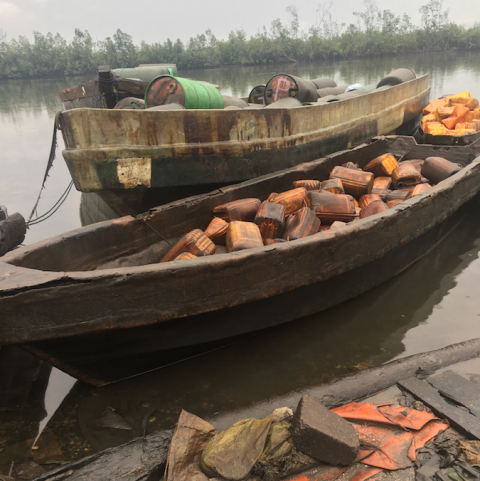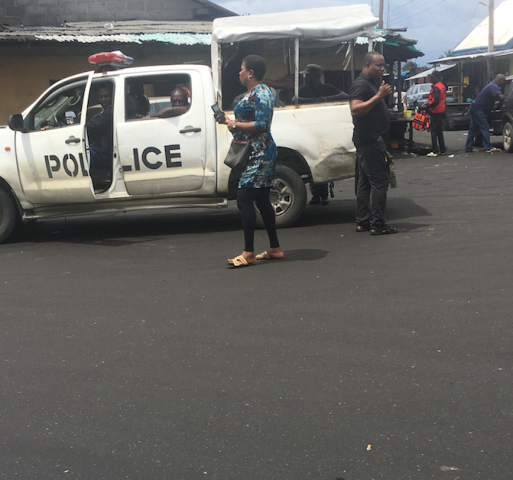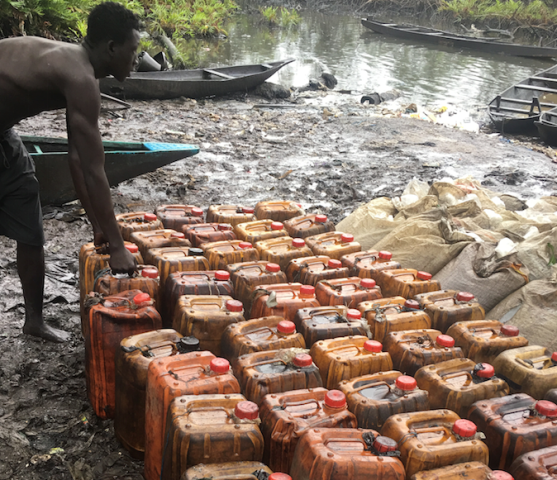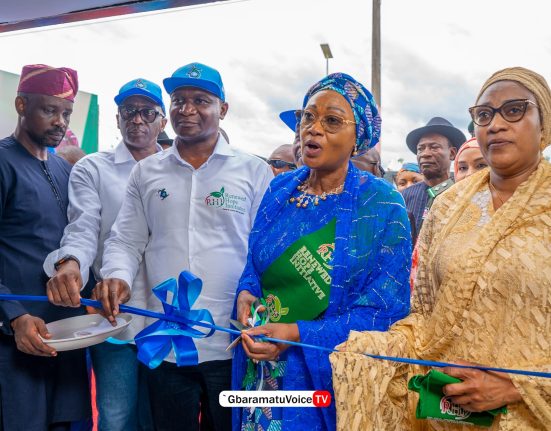By Femi Owolabi
Nigeria has lost more than N3 trillion to oil thieves in the last two years, according to a report Nigeria Natural Resource Charter (NNRC) released in August. Being an economy dependent on oil, the activities of these saboteurs constitute a major threat to the finance of government. To check oil theft, the government of ex-President Goodluck Jonathan engaged “reformed” militants to protect pipelines. Although, this did not lead to eradication of vandalisation, it reduced the criminal act.
The current administration, however, revoked the contracts and made new arrangements but the creek manors are still having a field day. Operating across hidden islands in the Niger Delta, the oil thieves siphon products from pipelines of oil companies in the middle of the night and refine them before disbursing to willing buyers.
Disguising as a potential buyer and at some point a researcher, FEMI OWOLABI uncovered the operations of the vandals who confessed to rendering security operatives powerless with bribes running into millions of naira.
From the Bille jetty in Port Harcourt, Rivers state, the boat snaked through sleeping rivers to the wavy sea, and after four hours traversing the waters, docked at Kalakurama, an island of about 100 dwellers — mostly fishermen, and those into the business of illegal oil bunkering.

Just a few kilometres after Bille, the largest island on the route, is the heavy presence of security operatives whose uniforms and insignia on gunboats gave out as those from the Nigerian navy. Like the experience with the police on a road journey, boats, when approaching the patrolling naval gunboats would move at slow pace, with passengers’ hands in the air for what can be described as stop and search.
Within this region where the officers are seen, are tens of high pressure pipelines— bearing the Nigeria National Petroleum Corporation (NNPC) brand— running deep into the sea.
“That’s where we get the crude from,” Opusunju, a 35-year-old man who left his driving job for illegal oil bunkering, taps this reporter gently on the shoulder as the boat sailed away from the naval officers’ muzzles.
Curiously raising an eyebrow at Opunsunju to check the possibility of beating these heavily armed security operatives to access the pipelines, he responds with a smile that suggests this, the least of worries for the oil thieves.
WE DO THIS IN THE MIDDLE OF THE NIGHT
Surprisingly, the journey wouldn’t end at the shore of Kalakurama, where teenage boys are tending to a dozen of boats filled with cans, and docked by the island. The boys, whose oily bodies glitter under the mild sun, are conversing in Hausa. Most of them had come from the northern part of Nigeria. They work here under the supervision of those in the illegal business.
“It is from here we start the journey to where we operate,” Opusunju says, as he is welcomed by Patrick, his partner. “Those boys are the ones we use to help load products from our refinery down here,” he adds.
The island, hidden between the waters, Opusunju and Patrick describe as a safe place for their business. Before now, they had operated from an island on the other side of the river, but they moved to Kalakurama when they became targets of security operatives and the original dwellers couldn’t accommodate them anymore.
“Nobody comes here except fishermen who live here and some of us who are into this oil business,” Opusunju says, untying his boat from its anchor. Commercial boats that convey passengers from Port Harcourt stop and turn back at Bille, but only a few would agree to reach Kalakurama. It is from here Opusunju, and others in the business with him, pick their own boats and head for the inlet where the crude oil is being refined. The sun is setting, and as Opusunju ignites the engine of his boat, he hands rain boot and head torch to this reporter.









